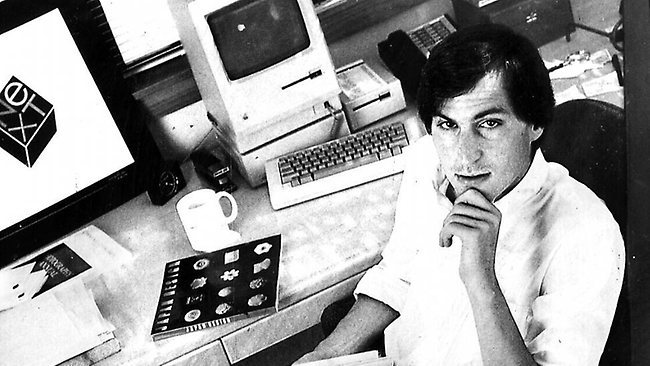NeXT: Steve Jobs's dot-com IPO that never happened

At the Computer History Museum appeared declassified facts about the planned release of NeXT IPO. I read a book by Walter Isaacson, but I don’t recall anything like it. Many people know that Jobs was expelled from Apple in 1985, and years later Apple acquired his own company, NeXT, because of its high achievements in the field of software, namely, the NeXTSTEP operating system and a thoughtful API (OpenStep).
Immerse yourself in history. In 1992, NeXT suffered heavy losses and the company made a decision to reorient its business to develop software. In this regard, the aforementioned OpenStep appears, which is compatible with Windows NT from Microsoft and Sun and HP versions of Unix, which radically contradicts Jobs' usual thinking about a closed ecosystem. In 1995, the company was renamed from NeXT Computer, Inc. to NeXT Software, Inc. in order to highlight the new enterprise strategy.
In the same 1995, the Netscape IPO occurs, which entails a dot-com boom. Steve predicted Netscape's successful entry to the stock exchange and the focus on the World Wide Web for NeXT became obvious. By that time, the company already had corporate solutions like the "Enterprise Objects Framework" (EOF), which allowed developers to write applications that work with remote databases on servers.
')
Working on OpenStep and EOF, NeXT has a new technology called WebObjects, an object-oriented web development environment that is capable of serving dynamic content on the fly, which was radically different from the static pages popular at the time. WebObjects separated the business logic of the web application from its user interface, providing high development flexibility and compatibility with legacy systems.

Announced in 1996, WebObjects technology focused on the synergy of open Internet and corporate intranets. It also had to diversify the NeXT business, which depended on a small number of large customers. Also in 1996, it became possible to write WebObject-based applications using the Java language owned by Sun. In less than a year, technology has gained customers such as Dell, Apple, Microsoft, who used WebObject to create their own online stores. By the way, WebObjects later became the basis for the iTunes Music Store. And one deal with Microsoft brought the company $ 10 million, which was equivalent to 45% of revenue in the last 9 months.
The previously undisclosed S-1 registration of the SEC in the stock market clearly shows that NeXT expected WebObjects for high growth in order to justify an IPO, especially in the post-Netscape investment environment. Dotcom quickly developed and completely ignored the current yield, leaving the growth potential in priority. Despite NeXT's accumulated losses of $ 273 million, the company was taken over by Apple for $ 429 million in cash and 1.5 million shares of Apple itself.
Personally, thanks to these facts, I realized the conditions and scale of the deal with NeXT. Here is such an interesting story about the great calculation of Steve Jobs or so, and the other vector of Internet development that didn’t pay into reality.
I apologize for such a free retelling from a source. Initially, he made a recording for his channel in Telegram , but was convinced that this would also be interesting for GeekTimes audience.
Source: https://habr.com/ru/post/401439/
All Articles